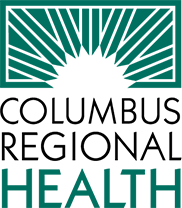Sports Medicine Keeps You Moving
When an athlete is injured, a doctor or trainer rushes onto the court or field to help. That’s the face of sports medicine — but a misleading one. The truth is, you don’t have to be an athlete to benefit from sports medicine.
“Sports medicine is for anyone who is active, or wants to be more active, and is having a problem related to that activity,” said Tim Von Fange, M.D., a Columbus Regional Health (CRH) sports medicine physician.
The sports medicine staff at CRH sees patients ranging from young skateboarders to weekend warriors with knee pain to electricians hurt on the job to retirees feeling the effects of their age. Even among young people, it is not just the star athlete who needs help.
“We see everyone from a high school athlete who signed a scholarship to the kid who mostly plays video games and then throws a football and injures his shoulder,” said Orthopedic Surgeon Eric Tannenbaum, M.D.
The sports medicine team at CRH can help if you:
- Injure yourself. For example, while playing a sport you hurt a knee or ankle. “We can evaluate, diagnose and provide a road map for you to get back to baseline,” said Dr. Von Fange.
- Experience pain without an obvious injury. This might be the runner used to jogging 50 miles per week who now struggles to reach 20. It might be an older person feeling the wear and tear on joints due to aging. Or it could be what Dr. Von Fange calls the “industrial athlete,” who has pain doing his or her job.
- Have a physical activity goal. “There’s not an age limit on that,” said Dr. Von Fange. “If you are 80 and want to work on your garden more, that’s a goal. We’re more than happy to work with you.”
CRH offers the full gamut of treatment options: from simple compression of a soft tissue injury to physical therapy to surgery.
To diagnose injuries, one of the best techniques is the use of ultrasound. Yes, that’s the same ultrasound commonly associated with the obstetrician. In sports medicine, ultrasound images can provide real-time information about soft tissue problems without the use of radiation, unlike X-rays or a CT scan. Ultrasound is also less expensive than an MRI.
People may put off seeing a sports medicine specialist because their injury isn’t life-threatening, and they can handle the discomfort. But Dr. Tannenbaum urges people to seek help if they feel pain. He sees patients who have been putting up with aching limbs and joints for years.
“That’s waiting too long to get checked out,” he said. “If you catch something right away, before it’s chronic, it’s easier to treat.” That means the sooner you’ll be able to hit the court or field again with no limitations.
Learn more about sports medicine offerings at Columbus Regional Health.

CRH News
-
Final Two CRH Practices Move to NexusPark
Apr 18, 2024, 12:36 PM by DeClue, A.CRH at NexusPark officially opened in late January, and more than 15 provider practices and services have relocated to the space in the first quarter of 2024.Full story -
Wound Center Receives National Awards
Apr 3, 2024, 15:21 PM by DeClue, A.The Wound Center achieved outstanding clinical outcomes for twelve consecutive months, including a patient satisfaction rate higher than 92 percentFull story -
CRH conducting independent public health survey
Mar 26, 2024, 12:41 PM by DeClue, A.Columbus Regional Health is conducting a Health Status Survey by telephone and online from March through May.Full story -
Columbus Regional Health offers new online health portal for expectant parents
Mar 25, 2024, 14:21 PM by DeClue, A.With CRH’s new My Pregnancy Journey, patients can use their computers or mobile devices to review digital prenatal education from a trusted source and track important decisions and tasks that need to happen at specific pregnancy milestones.Full story -
Additional Medical Practices Move to NexusPark
Mar 25, 2024, 11:24 AM by DeClue, A.More practices and services relocate to NexusPark facility.Full story -
Eclipse office hours for CRH-affiliated services
Mar 21, 2024, 14:01 PM by Laker, J.Office hours for CRH-affiliated practices and service lines for the April 8, 2024, Total Solar Eclipse.Full story

